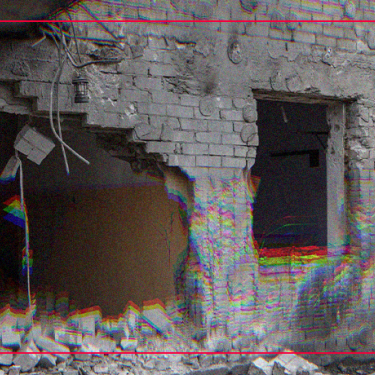In search of justice: Ukrainian journalists mobilised to investigate war crimes

Since the Russian invasion on 24 February 2022, the daily work of Ukrainian journalists has been transformed. In order to contribute to local and international legal proceedings, media outlets are investigating Russian war crimes in real time and transmitting evidence to local and international justice. Reporters Without Borders (RSF) salutes the meticulous and impactful work of these journalists who are fighting against impunity
“The scale of the atrocities by the Russian occupation forces in Ukraine, including attacks on civilian infrastructure, deportation and torture, is unprecedented. The strength of the Ukrainian media lies in their ability to conduct thorough, detailed reporting that can provide Ukrainian and international prosecutors with evidence. We must keep supporting this vital investigative journalism and publish it internationally so that the war crimes do not go unpunished.”
Jeanne Cavelier
Head of RSF’s Eastern Europe and Central Asia desk
When journalist Iryna Lopatina began working on the story of a father searching for his three children who had been sent to Russia from Mariupol, in the occupied zone of the Donetsk region, the subject of the illegal deportation of Ukrainian children had never been dealt with. The journalist succeeds in proving the direct involvement of the Russian Commissioner for Children's Rights, Maria Lvova-Belova. Her unprecedented story had an international impact and led to the issue of an arrest warrant for her and Vladimir Putin by the International Criminal Court (ICC) in March 2023.
“This was one of our leading investigations and was published in the US magazine Vanity Fair in October 2022,” said Nataliya Gumenyuk, the head of The Reckoning Project in Ukraine. Since its creation in March 2022, this Ukrainian NGO has trained dozens freelancers and journalists working for national or local media in documenting war crimes as they happen.
The aim is to “ask the right questions in order to understand what is happening without traumatising the victims or their relatives,” said Gumenyuk. Journalists like her are often the first to arrive at the scene of attacks to collect statements from the victims. The information they gather is not only used in articles but is also shared with Ukrainian and international judicial officials. This enables the judges to “save time,” she said.
“The Ukrainian justice system has opened more than 100,000 war crimes proceedings and is overwhelmed,” said Yevheniia Motorevska, a journalist for The Kyiv Independent, an English-language news site. The war has transformed her work. Before the invasion in February 2022, she specialised in legal and anti-corruption cases for the independent news sites Hromadske and Slidstvo.info. “I quickly realized that my investigative skills could be useful elsewhere,” she said.
When The Kyiv Independent decided to open its own war crimes investigation department, Yevheniia Motorevska was put in charge and she now leads a team of six journalists. She adapted her working methods and learned to navigate Russian online sources, in particular by training herself in open-source intelligence or ‘OSINT’, that is to say, the collection and analysis of public data on the Internet.
Her department has already published the findings of three investigations into those responsible for acts of torture committed against Ukrainian prisoners of war and civilians in Olenivka prison in the occupied Donetsk region, into Ukrainian children who were illegally deported to Russia, and into children who were killed by Russian gunfire. Each investigation required between five and eight months of work before being published online in both English and Ukrainian to reach a wide audience.
Investigating war crimes against journalists
Since the start of the Russian invasion, RSF has also published the findings of two investigations that it conducted with the help of Ukrainian media personnel into Russian crimes against Ukrainian journalists – photo-reporter Maks Levin’s execution and news agency reporter Dmytro Khyliuk’s enforced disappearance. RSF has filed eight complaints with the ICC and Ukraine’s prosecutor-general and two criminal complaints in France for attacks against journalists.
Ukraine is ranked 79th in RSF's 2023 World Press Freedom Index, while Russia is ranked 164th.
